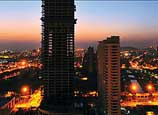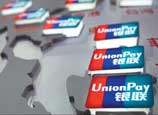
Most major cities reported a sharp monthly rise in property prices in February, fueled by demand outstripping supply, analysts said.
Of the 70 major cities monitored by the National Bureau of Statistics, 66, led by Beijing, Shanghai, Guangzhou and Shenzhen, saw prices rise month-on-month.
January, by comparison, saw 53 of the monitored cities register property price increases.
Measures rolled out by the government at the beginning of March to curb rising property prices have still to kick in, analysts said.
Wenzhou in Zhejiang province was the only city to experience falling property prices in February.
A majority of cities also saw property prices rise over the year with 62 cities registering annual increases, compared with 53 in January.
The largest increase was 8.2 percent in Guangzhou, almost double the rate in the previous month.
Beijing came next with 7.7 percent, Shenzhen with 5.8 percent, and Shanghai with 4.1 percent.
"The key reason triggering this round of price hikes is limited supply," said Tao Hongbing, president of Gaoce Real Estate Brokerage.
Just nine projects opened for sale in Beijing in the first 10 days of March, down 30 percent for the same period of the previous month, according to Yahao Real Estate Selling and Consulting.
The strong rebound in the property market led to a government response on March 1 that targeted speculative property sellers.
Homeowners who sell their homes within five years after their purchase will face capital gains tax of 20 percent. Before the new measure, the tax levied was 1 percent of the sale price. The details for the implementation will be released shortly.
The measure, targeting speculation, resulted in further price hikes in the new housing market, especially in key cities as buyers opted for new properties.
A real estate project on Beijing's North Fifth Ring Road increased its sale price by almost 4,000 yuan ($644) per square meter within 20 days.
But there were still more than 1,300 potential customers seeking 184 units.
Louis Kuijs, an economist with RBS, believes the end may be in sight for surging prices and a period of stability is approaching.
A report by Standard & Poor's Ratings Services said that developers were likely to have a reasonably good year.
Sino-Ocean Land, a Hong Kong-listed property developer, set its sales target for 2013 at 35 billion yuan ($5.6 billion), up 15 percent year-on-year.
"We believe the new policies from the government will have a huge impact on the market in the short term, but we didn't change our sales target because of that. We will invest more in self-use products and commercial properties," said Li Ming, president of Sino-Ocean Land.
China Overseas Land & Investment posted on Monday a 21.1 percent rise in 2012 net profit to 15.16 billion yuan and said it was targeting property sales of no less than 80 billion yuan in 2013.
Longfor, a Hong Kong-listed property developer, reported a net profit of 54 billion yuan in 2012, an increase of 19.4 percent year-on-year, the company said on Friday.
The company's chairman Wu Yajun said it will further boost its commitment to the commercial property business.
"Residential developers in China are starting to rebuild,'' said Standard & Poor's credit analyst Bei Fu.
"Financing conditions and liquidity have improved while refinancing risks have moderated. That's why we recently revised our outlook for the Chinese market to stable from negative. But smaller Chinese developers could still struggle to raise funds or overcome stiff competition."
















 Seeking a dream wedding at Beijing Wedding Expo
Seeking a dream wedding at Beijing Wedding Expo


![]()
